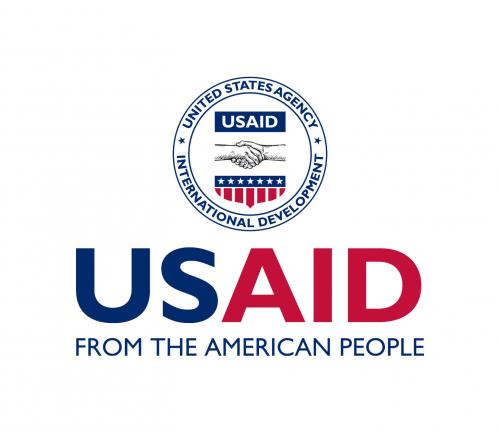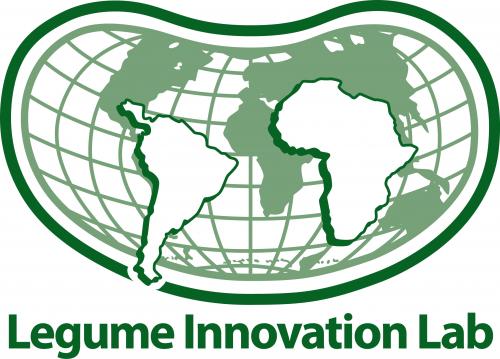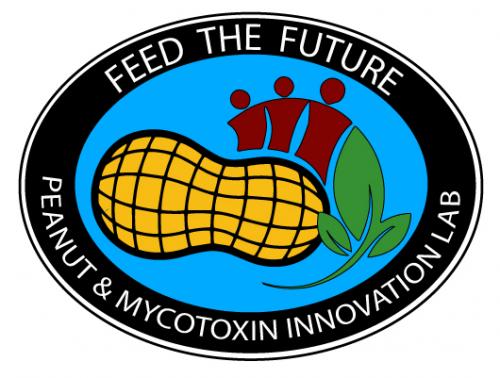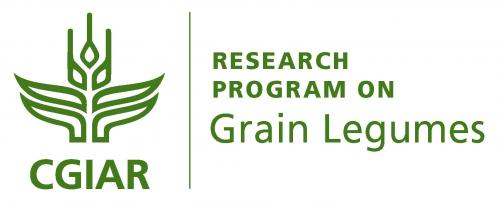Legume Scholars Program Award
Announcing a new partnership between the CGIAR Research Program on Grain Legumes and USAID's Feed the Future Innovation Labs for Collaborative Research on Grain Legumes and Peanut Productivity and Mycotoxin Control.
Legume Scholars Program Launched
Submissions Due By December 19, 2014
 |
 |
 |
 |
By 2050 the world will need to feed two billion additional people. A challenge this serious requires the best and brightest ideas in agricultural science. Want to help feed the future? Consider applying for a Graduate Fellowship from the Legume Scholars Program.
Announcing a new partnership between the CGIAR Research Program on Grain Legumes and USAID’s Feed the Future Innovation Labs for Collaborative Research on Grain Legumes (Legume Innovation Lab) and Peanut Productivity and Mycotoxin Control (Peanut & Mycotoxin Innovation Lab).
This new program is specifically targeting promising young scientists from developing countries committed to pursuing research careers involving legume crops. Graduates from the program will further strengthen the research capacity of institutions in their home countries committed to the growth and development of the legume sectors through scientific inquiry.The Fellowship provides full tuition and living expenses for up to two years for an M.Sc. and up to four years for a Ph.D. program; medical coverage; airfare and related travel expenses; a personal computer; field and lab research opportunities; and professional development workshops.
Interested students must be nominated and have a strong recommendation from a scientist conducting research on one or more of the targeted legumes in a USAID Feed the Future Innovation Lab, the CGIAR, or in a developing country NARO or agriculture university. It is the nominating scientist who must submit all documents to the Legume Scholars Programs. Students do not apply directly! See application package for details.
Accepted students will conduct research at major U.S. and other international universities in key areas, including agriculture economics, crop physiology, food science, gender studies, nutrition, plant breeding and genetics, plant protection, soil science, and the social sciences.
Interested students must demonstrate high academic potential; be a citizen of a developing country in Africa, Asia or Latin America with significant grain legume production; be under 35 years of age (greater age flexibility for female candidates); be proficient in English; and be committed to returning to the home country to pursue a career on grain legume research with a national agriculture research organization, agriculture university, or a CGIAR Center. Students must be nominated by and have a strong recommendation from a scientist conducting research on grain legumes at one of the USAID Feed the Future Innovation Labs, the CGIAR Centers, or in a developing country national agriculture research organization or university.
Nomination forms must be completed and submitted by qualified nominating scientists. Nomination forms and associated documents can be downloaded at http://www.legumelab.msu.edu/news/legume_scholars_program_award. Questions regarding eligibility or the application and selection process may be directed to the Legume Scholars Program Office (legumescholar@anr.msu.edu ), the Peanut & Mycotoxin Innovation Lab (Dave Hoisington, Director, davehois@uga.edu) and the CGIAR Research Program on Grain Legumes (Noel Ellis, Director, n.ellis@cgiar.org). Completed nomination package documents must be submitted electronically (preferably in PDF format) as attachments to an email to legumescholar@anr.msu.edu on or before December 19, 2014, for a Fall 2015 start of the graduate program.
Legumes—especially grain legumes—are critical crops in developing countries. They are nutrient dense, staple foods that help ensure food and nutritional security while providing needed household income for smallholder farmers, a majority of whom are women, who are the principle producers of grain legumes in many regions of the world.
SPONSORING GRAIN LEGUME PROGRAMS
CGIAR Research Program on Grain Legumes is a collaborative ten-year research program that focuses on improving chickpea, cowpea, common bean, faba bean, groundnut, lentil, pigeon pea and soybean crops grown by poor, smallholder families in five target regions to combat poverty, hunger, malnutrition and environmental degradation. The program is a global research‐for‐development collaboration involving scientists at four member institutions of the CGIAR Consortium with the International Crops Research Institute for the Semi-Arid Tropics (ICRISAT) as the lead center along with the International Center for Tropical Agriculture (CIAT), the International Center for Agricultural Research in the Dry Areas (ICARDA) and the International Institute of Tropical Agriculture (IITA), along with several public and private institutes and organizations, governments and farmers worldwide.
Feed the Future Innovation Lab for Collaborative Research on Grain Legumes (Legume Innovation Lab) is a research and institutional capacity strengthening program (2007–2017) funded by the U.S. Agency for International Development (USAID) and administered by Michigan State University. The program contributes to economic growth and food and nutrition security through knowledge and technology generation that strengthens grain legume (e.g., bean, cowpea) value chains in developing countries of Africa and Latin America through multidisciplinary collaborative research between U.S. universities and research organizations in USAID Feed the Future focus countries in Sub-Saharan Africa and Latin America.
Feed the Future Innovation Lab for Collaborative Research on Peanut Productivity and Mycotoxin Control (Peanut & Mycotoxin Innovation Lab) is supported by USAID and administered by the University of Georgia. Its mission is to apply leading innovative U.S. science to improve peanut (groundnut) production and improve food safety by mitigating the negative impacts of contamination of peanut and other crops from toxins produce by soil-borne fungal pathogens (known as mycotoxins) in developing countries. Current collaborative research and institutional strengthening projects are focused in five Feed the Future countries, including Ghana, Haiti, Malawi, Mozambique and Zambia.
Forms to Download
Legme Scholarship Application Package (containing the Request for Nominations, Checklist for Nominations, and Guidelines for Letters of Interest,, Nomination Form, and Evaluation of Candidate Form
Legume Scholarship Application Package (containing the Request for Nominations, Checklist for Nominations, and Guidelines for Letters of Interest , Nomination Form, and Evaluation of Candidate Form
Legume Scholars Program Award Announcement
Legume Scholars Program Award Announcement
Legume Scholars Nomination Form
Legume Scholars Evaluation of Candidate Form
![]()



 Print
Print Email
Email


